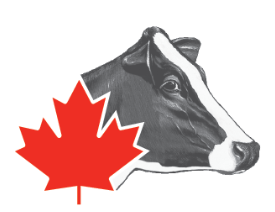Source: Lactanet
Author: Allison Fleming, Geneticist, Lactanet
Brian Van Doormaal, Chief Services Officer, Lactanet
Conformation has been an important element of genetic improvement and selection programs in dairy cattle since its outset. Although linear type traits may not be the primary...
Source: Journal of Dairy Science
M.J.VandeHaar*L.E.Armentano†K.Weigel†D.M.Spurlock‡R.J.Tempelman*R.Veerkamp§
*
Department of Animal Science, Michigan State University, East Lansing 48824
†
Department of Dairy Science, University of Wisconsin, Madison 53706
‡
Department of Animal Sciences, Iowa State University, Ames 50011
§
Animal Breeding...
Source: Jersey Canada
A new undesirable genetic factor, known as Jersey Neuropathy with Splayed Forelimbs (JNS), has been identified in the Jersey breed. The Jersey Canada Board of Directors has been made aware and will be addressing this in the...
Source: BMC Veterinary Research
Abstract
Background
In dairy herds, mastitis causes detrimental economic losses. Genetic selection offers a sustainable tool to select animals with reduced susceptibility towards postpartum diseases. Studying underlying mechanisms is important to assess the physiological processes that cause differences...
Source: Lactanet
Several new traits will be introduced by Lactanet with the December 2020 release of genetic evaluations. For all breeds, genetic evaluations for the linear type traits Udder Floor, Fronts Legs View and Locomotion will be added to the...
Source: Select Sires news release
Select Sires has developed a full-service sire search mobile application for farmer-owners. This easy-to-navigate app is available at no cost on the Apple App Store and Google Play Store.
"As we set out to create an...
Source: Holstein Canada
Tight margins, increasing heifer rearing costs, and low dairy sale prices are a very real reality in today’s dairy industry. In this scenario, increasing profitability of the operation is essential. Some aspects to achieve that are high...
Source: BMC Veterinary Research
Zalewska, M., Kawecka-Grochocka, E., Słoniewska, D. et al. Acute phase protein expressions in secretory and cistern lining epithelium tissues of the dairy cattle mammary gland during chronic mastitis caused by staphylococci. BMC Vet Res 16,320 (2020)....
Source: Lactanet Canada
Source: Holstein Canada
SINCE THE INTRODUCTION OF GENOMICS, we have seen advancements in genetic progress for all traits in the Holstein breed. Though it may be hard to believe, genetic progress has doubled in the years since genomics; it is...









